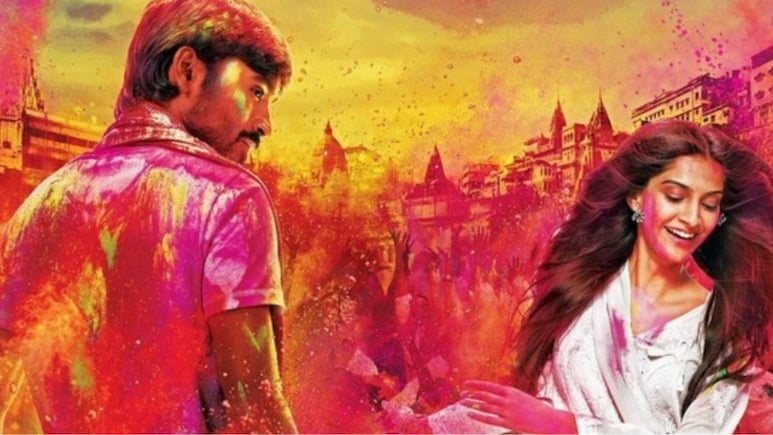
When Aanand L Rai's Raanjhanaa hits theatres in Tamil Nadu on August 1, re-released as its Tamil-dubbed version Ambikapathy, its ending will not be the one that film audiences remember. Posters promoting the re-release suggest the film's tragic climax has been altered using Artificial Intelligence (AI) to give it a "happy ending", where Dhanush's character survives.
What was intended as a soulful, imperfect love story has now been digitally reshaped by production banner Eros International and not with its director Aanand L Rai's consent.
Raanjhanaa, which originally released in 2013, revolved around Hindu man Kundan (Dhanush) who is in love with Zoya, a Muslim woman played by Sonam Kapoor, right from his childhood in Varanasi. Towards the end of the film, Kundan is shot at a rally in Delhi and later dies at a hospital.
Weeks after Aanand L Rai called the move by the production banner "a gross violation" of the film's integrity and the trust of audiences who've embraced its flawed beauty, more and more voices from the film industry are joining the discourse raising serious ethical, legal, and creative concerns.
Screenwriter Kanika Dhillon, who co-wrote Aanand L Rai's 2022 film Raksha Bandhan with her husband Himanshu Sharma, sayd the moment calls for urgent introspection.
While AI is undoubtedly a powerful tool, she warns that it must be wielded with care. Just because studios may hold the legal rights to a film, and now have access to technologies like AI, doesn't automatically justify rewriting a story.
"Are we okay with changing the story without the consent of its key creators?" asks Kanika Dhillon, who turned producer with Do Patti (2024). For her, altering a film without involving the people who birthed it is a clear infringement of moral rights and a violation of artistic trust. She argues that creators must now proactively safeguard their work because unchecked, this kind of tampering could set a dangerous precedent for the industry.
Director Kabir Khan called the studio's actions "preposterous". For him, having the legal rights to a film does not give a studio the moral right to distort its core. If something similar happened to his work, Kabir Khan said, he'd take the matter to court, to the media, and to the public. "It's criminal to even entertain such a thought," the Ek Tha Tiger director said.
That lack of communication and trust is exactly what actor and Tribhanga director Renuka Shahane finds most troubling. She called the move "really, really unethical", and said it breaks an unwritten contract between collaborators in the creative process.
"The person who has birthed the project, the person whose baby the project is, suddenly the baby is snatched from their hands. I don't think that's right. It's morally and ethically completely wrong," she said, adding that if such a thing happened to her, much like Kabir Khan, she would take the matter to court. Shahane believes writers and directors now need to legally protect their creative control, especially the right to decide how a story ends.
Producer Tanuj Garg, known for backing films such as Do Aur Do Pyaar and Tumhari Sulu, echoed the concern, calling it "a precarious issue". While he acknowledges that technology is transforming the business and empowering stakeholders, he also sees a growing threat to creative integrity. "There needs to be a balance if such a thing even exists," he said, "but more importantly, transparency of communication between partners, so that creators do not feel slighted."
On Sunday, screenwriter-lyricist Varun Grover, who made his directorial debut with 2023's All India Rank, weighed in on the issue with his signature sarcasm through a reel that quickly gained traction online.
With less than a week to go before Ambikapathy releases once again in theatres but with an alternate climax, the AI-generated "happy ending" has become far more than just a creative tweak. It's now a flashpoint for larger questions around authorship, artistic consent, and the unchecked power of technology in the hands of rights holders.
As AI continues to blur the line between storytelling and simulation, creators are drawing a clear one of their own: intent, authorship, and trust are not just footnotes, they're the foundation.

